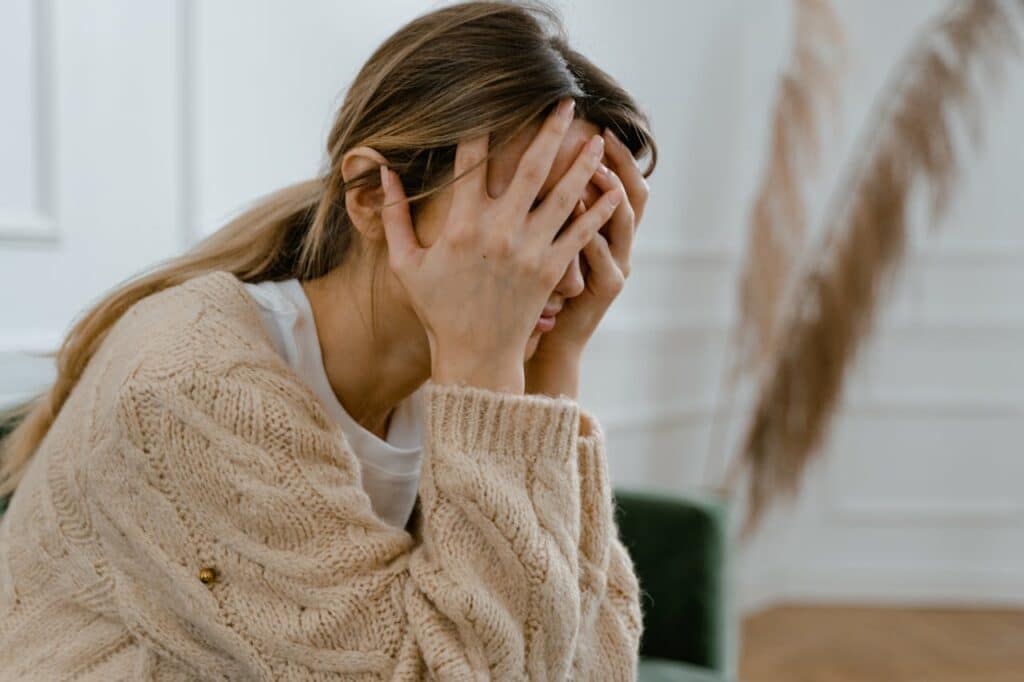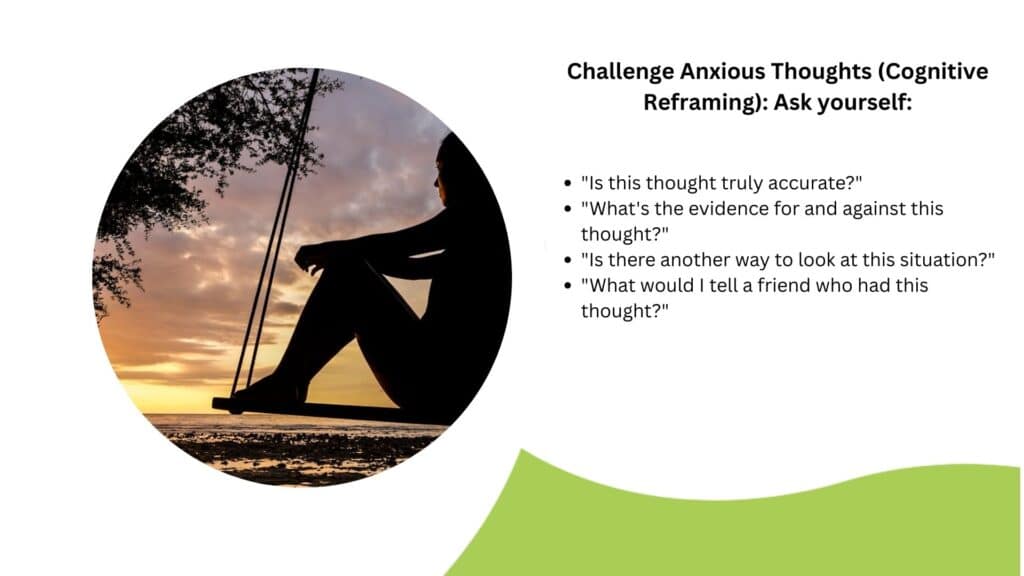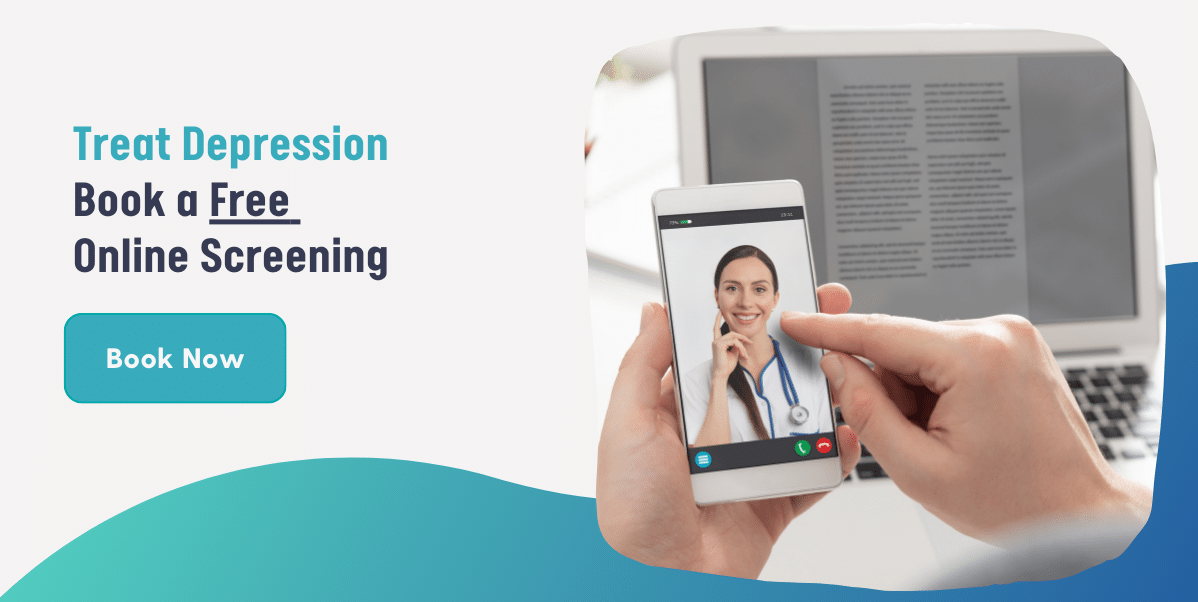
Anxiety is a natural human emotion, a built-in alarm system designed to protect us from perceived threats. However, when anxiety becomes chronic or overwhelming, it can significantly impact daily life. A crucial step in managing anxiety is understanding and addressing your triggers – the specific situations, thoughts, emotions, or even substances that can set off or worsen your anxious feelings.
Identifying Your Anxiety Triggers
The first and most important step is to become a detective of your own anxiety. This takes self-awareness and sometimes a bit of detective work.
Keep an Anxiety Journal: This is one of the most effective ways to pinpoint your triggers. For a few weeks, whenever you feel anxious, note down:
- What was happening just before you felt anxious? (e.g., a specific conversation, an email, a social event, a quiet moment alone).
- Where were you?
- Who were you with?
- What thoughts were going through your mind?
- What physical sensations did you notice? (e.g., racing heart, shaky hands, stomach ache).
- What did you do to cope (if anything)?
Reflect on Past Experiences: Think back to times when your anxiety was particularly high. Are there common themes or situations that emerge?
Pay Attention to Your Body’s Cues: Anxiety often manifests physically. Learn to recognize your body’s early warning signs, such as a tightening in your chest, shallow breathing, or muscle tension.
Seek Feedback from Loved Ones: Sometimes, those close to us can observe patterns or triggers we might miss. Ask a trusted friend or family member if they’ve noticed anything that seems to set off your anxiety.
Practice Mindfulness: Mindfulness helps you stay present and observe your thoughts and feelings without judgment. This increased awareness can make it easier to catch a trigger in real-time.
Strategies for Dealing with Anxiety Triggers
Once you’ve identified your triggers, you can start developing a personalized toolkit of coping strategies. These can be categorized into immediate strategies for when a trigger hits, and longer-term strategies for building resilience.
Immediate Coping Strategies (When a Trigger Hits)
Deep Breathing Exercises: When anxiety strikes, your breathing often becomes shallow and rapid. Practicing slow, deep breathing can activate your body’s relaxation response.
- Box Breathing (4-4-4-4): Inhale slowly for a count of four, hold your breath for a count of four, exhale slowly for a count of four, and hold your breath for a count of four. Repeat several times.
Grounding Techniques: If you feel overwhelmed or disconnected, grounding techniques can bring you back to the present moment.
- 5-4-3-2-1 Method: Identify 5 things you can see, 4 things you can touch, 3 things you can hear, 2 things you can smell, and 1 thing you can taste.
Progressive Muscle Relaxation: Tense and then relax different muscle groups throughout your body. This helps release physical tension often associated with anxiety.
Mindful Movement: Even a short walk, some gentle stretches, or dancing can help release built-up anxious energy and shift your focus.
Challenge Anxious Thoughts (Cognitive Reframing): Ask yourself:
- “Is this thought truly accurate?”
- “What’s the evidence for and against this thought?”
- “Is there another way to look at this situation?”
- “What would I tell a friend who had this thought?”
Talk to Someone You Trust: Sharing your feelings with a supportive friend, family member, or therapist can provide relief and perspective.
Distraction: Sometimes, a temporary distraction can help break the cycle of anxious thoughts. Engage in an enjoyable activity, listen to music, or watch something engaging.
Long-Term Strategies (Building Resilience)
Healthy Lifestyle Habits: These form the foundation of good mental health.
- Regular Exercise: Physical activity releases endorphins, which have mood-boosting and stress-reducing effects. Aim for at least 30 minutes of moderate exercise most days.
- Balanced Diet: Eat regular, nutritious meals to maintain stable blood sugar levels. Limit caffeine, sugar, and alcohol, as they can exacerbate anxiety symptoms.
- Adequate Sleep: Prioritize 7-9 hours of quality sleep per night. Poor sleep can significantly worsen anxiety.
Set Clear Boundaries: Learn to say “no” to requests that overwhelm you and protect your time and energy. This can reduce situations that trigger anxiety.
Practice Self-Care: Regularly schedule time for activities that you enjoy and that help you relax and recharge. This could be reading, a hobby, spending time in nature, or taking a warm bath.
Time Management: Organize your schedule to reduce stress and feelings of being overwhelmed. Break large tasks into smaller, manageable steps.
Mindfulness and Meditation: Regular practice can train your brain to be more present and less reactive to anxious thoughts.
Professional Help: If anxiety significantly impacts your daily life, consider seeking support from a mental health professional.
- Cognitive Behavioral Therapy (CBT): This is a highly effective therapy for anxiety that helps you identify and change negative thought patterns and behaviors.
- Exposure Therapy: A type of CBT where you gradually and safely expose yourself to your fears to reduce your anxious response over time.
- Acceptance and Commitment Therapy (ACT): Focuses on accepting difficult thoughts and feelings while committing to actions aligned with your values.
- Medication: In some cases, medication (such as antidepressants or anti-anxiety medications) may be prescribed in conjunction with therapy to help manage symptoms.

Moving Forward
Dealing with anxiety triggers is an ongoing process. Be patient and compassionate with yourself. Not every strategy will work for every trigger, and what works one day might not work the next. The goal is to build a comprehensive toolkit of strategies and to understand that you have the power to influence how you respond to anxiety. By actively identifying your triggers and practicing effective coping mechanisms, you can regain a sense of control and improve your overall well-being.
FAQs About Dealing with Anxiety Triggers
How long does it take to identify anxiety triggers?
It varies for each individual. Consistent journaling and self-reflection over a few weeks to a couple of months can often reveal common patterns.
Can old memories be anxiety triggers?
Yes, past traumatic or stressful experiences can be powerful triggers, even if they occurred many years ago.
Is it possible to eliminate all anxiety triggers?
It’s generally not realistic to eliminate all triggers, as some are unavoidable aspects of life (e.g., certain social situations, work deadlines). The goal is to learn how to manage your response to them.
What if I can’t identify my triggers?
If you’re struggling to identify your triggers, a mental health professional can provide guidance and support through therapy.
Are physical sensations themselves triggers?
Yes, sometimes the physical sensations of anxiety (e.g., a racing heart) can become a trigger for further anxiety, creating a vicious cycle. Learning to tolerate these sensations can be helpful.
Should I avoid my anxiety triggers?
While it’s wise to avoid triggers that are genuinely harmful or consistently overwhelming, completely avoiding all triggers can reinforce anxiety. Exposure therapy, for instance, involves gradual, safe exposure to triggers to reduce their power.
Can certain foods or drinks be anxiety triggers?
Yes, stimulants like caffeine, high sugar intake, and alcohol can exacerbate anxiety symptoms for many people.
Schedule Your Complimentary TMS Screening Today
At My TMS Therapy, we’re here to help you restore your energy and joy. Our compassionate team will guide you through every step of the process.
Call us at (877) 548-8081 or contact us online to book your screening today.
Sources:
Anxiety & Depression Association of America. (n.d.). Understanding and Treating Anxiety. https://adaa.org/understanding-anxiety
Mayo Clinic. (2022, November 17). Anxiety attacks: What to do when anxiety strikes. https://www.mayoclinic.org/diseases-conditions/anxiety/expert-answers/anxiety-attacks/faq-20058376
National Institute of Mental Health. (n.d.). Anxiety Disorders. https://www.nimh.nih.gov/health/topics/anxiety-disorders
Cleveland Clinic. (2023, June 14). Anxiety Triggers: Common Causes of Anxiety Attacks & What to Do. https://my.clevelandclinic.org/health/diseases/9536-anxiety-disorders
Anxiety & Depression Association of America. (n.d.). Understanding and Treating Anxiety. https://adaa.org/understanding-anxiety


